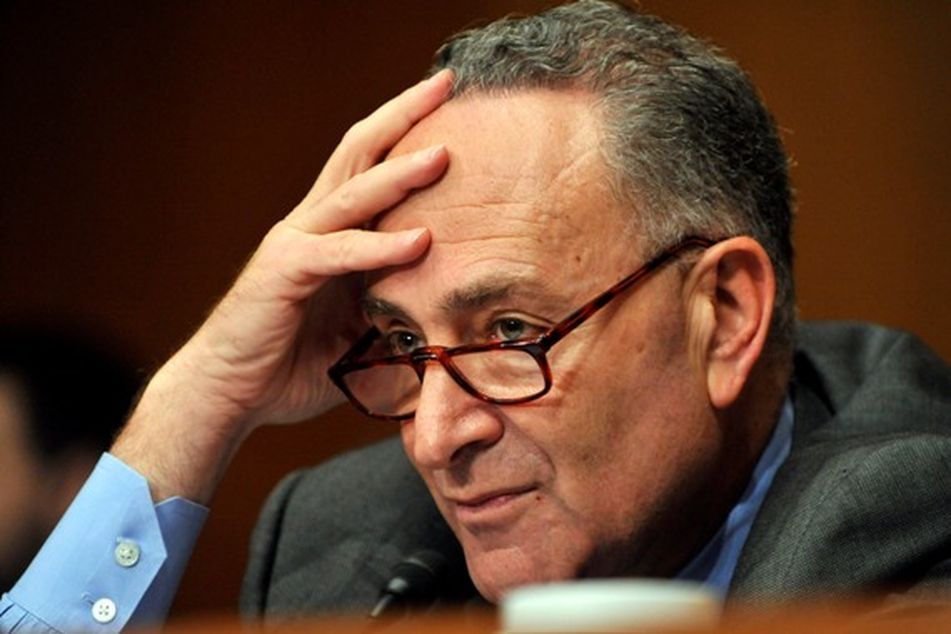Top-ranking Senate Dem calls for rise in capital gains rate

Schumer lacks specifics of tax plan; Republicans balk
Income rates on the highest earners should snap back to their levels prior to the Bush tax cuts a decade ago, while taxes on investment income should increase, according to a leading Senate Democrat.
Sen. Charles Schumer, D-N.Y., chairman of the Senate Democratic Policy Committee and the third-ranking Democrat in the chamber, said today that an increasingly popular approach to tax reform — broadening the base and lowering rates across the board — is misguided. Instead, revenue from ending special tax breaks for the wealthy should be used to balance the federal budget.
“It would be a huge mistake to take the dollars we gain from closing loopholes and put them into reducing rates for the highest-income brackets, rather than reducing the deficit,” Mr. Schumer said in a speech at the National Press Club in Washington.
In his tax-reform proposal, Mr. Schumer called for the top individual rate to return to 39.6%, a reduction in so-called tax expenditures — special tax preferences, deductions and credits — and an increase in the capital gains rate from the current 15%.
“Today the top 1% on average receives 20% of its income from capital gains — 10 times as much as the rest of the country,” Mr. Schumer said. “Capital gains makes up 60% of the income reported by the Forbes 400.”
But Mr. Schumer stopped short of saying that investment income should be taxed at individual rates.
“Now, if you are returning the top income rate to Clinton-era levels, as I have proposed, I do think it is too much to treat capital gains the same as ordinary income,” Mr. Schumer said. “We don’t need a 39.6% rate on capital gains.”
Mr. Schumer did not indicate his preferred capital gains rate.
“It’s not my purpose here to put together the specific details of the plan,” Mr. Schumer said. “It’s to lay out a path.”
Grand bargain
After the election, lawmakers will convene a lame-duck session of Congress to address the so-called fiscal cliff — the expiration of the Bush tax breaks coupled with steep domestic spending cuts that will go into effect on Jan. 1 unless lawmakers reach an agreement to avert them.
If lawmakers start fiscal-cliff negotiations from the standpoint of reducing income tax rates across the board, they’ll either never get around to cutting the deficit or will have to upend tax benefits for those in the middle-income range, Mr. Schumer warned.
“It is an alluring prospect to cut taxes on the wealthiest people, reduce the deficit and hold the middle class harmless, but the math dictates you can’t have it all,” Mr. Schumer said.
Democrats are ready to agree to significant cuts in Medicare spending if Republicans would allow tax revenue to be used for deficit reduction, according to Mr. Schumer.
“That is how a grand bargain can be had: Republicans get entitlement reform while Democrats get revenue,” Mr. Schumer said.
Republicans balk
The immediate Republican reaction was negative. Senate Minority Leader Mitch McConnell, R-Ky., said that he and House Speaker John Boehner want to extend all Bush tax cuts for one year.
“Senior Democrats are now openly acknowledging their plan to hold the economy hostage to massive, job-killing tax hikes and espousing the fiscally irresponsible view that says the country should be driven off the fiscal cliff rather than Congress working toward bipartisan solutions to reform and strengthen entitlements without killing jobs,” Mr. McConnell said in a statement.
A spokeswoman for House Ways and Means Committee Chairman Dave Camp, R-Mich., also threw cold water on Mr. Schumer’s proposal.
“The American people know when Washington politicians call for higher taxes it is to fuel more Washington spending (not deficit reduction),” Michelle Dimarob, an aide to Mr. Camp, wrote in an e-mail. “Americans don’t want to pay more in taxes to bail out Washington; they want tax reform that bails them out of the [President Barack] Obama economy.”
Mr. Schumer said his path would carve out protections for middle-income taxpayers.
“Tax preferences for things like a college education and retirement savings belong in the tax code even after reform happens,” Mr. Schumer said. “They were put in the code on purpose to make a middle-class lifestyle accessible and sustainable for more American families.”
Mr. Schumer also said that Bush tax cuts for households making less than $250,000 should remain in place.
“People below [$250,000] should not get any tax increase, period,” Mr. Schumer said.
Learn more about reprints and licensing for this article.








